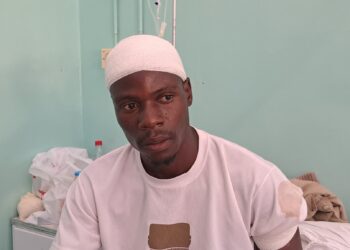The global movement to eliminate cervical cancer is gaining momentum, especially as countries unite on a “Day of Action for Cervical Cancer Elimination.”
This initiative coincides with the G20 Summit in Rio de Janeiro, where the city’s Christ the Redeemer statue, bathed in teal, symbolizes a collective commitment.
Advocates worldwide are stepping forward to support the World Health Organization’s (WHO) mission, with many nations implementing campaigns aimed at increasing human papillomavirus (HPV) vaccination rates and enhancing cervical cancer screening accessibility.
These efforts are vital, given that four years ago, 194 countries pledged to tackle cervical cancer head-on, leading to the adoption of a comprehensive global strategy.
Since that resolution, remarkable progress has been documented: 144 countries are now offering the HPV vaccine, over 60 have integrated HPV testing into their screening programs, and 83 nations have included surgical-care treatments in their health benefits.
Dr. Tedros Adhanom Ghebreyesus, the WHO Director-General, emphasized the essential contributions of health workers in this battle while acknowledging the persistent inequities faced by women in low-income countries.
Addressing these disparities is crucial, as they continue to bear a disproportionate burden of cervical cancer cases. To realize the ambitious goal of equitable access to prevention and treatment, strong leadership and sustained investment are imperative.
The ongoing global commitment underscores the belief that cervical cancer is preventable and treatable, inspiring advocacy that calls for solidarity across nations in the fight against this disease.
Thus, as the international community rallies together, the hope is not only to eliminate cervical cancer but to ensure that all women, regardless of their circumstances, have access to the necessary health resources.
SOURCE : NEWSREPORTZIM.COM










